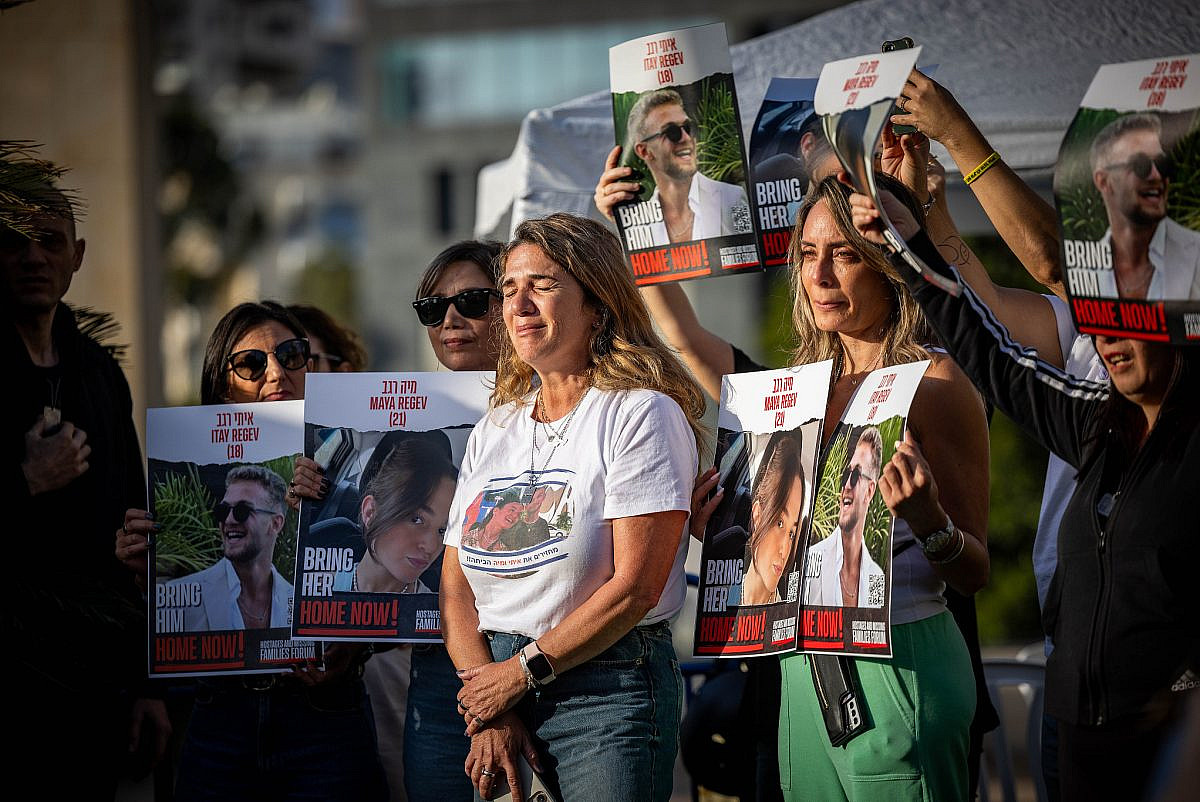Since October 7, Gil Dickmann has had one goal: convincing Israeli Prime Minister Benjamin Netanyahu and his far-right government to prioritize the release of the hostages being held in the Gaza Strip. Two of Dickmann’s relatives were kidnapped in the Hamas-led attack on southern Israel that day: his cousin, 39-year-old Carmel Gat, and his cousin-in-law, 36-year-old Yarden Roman-Gat.
Two weeks ago, the efforts of Dickmann and the families of the more than 240 other hostages bore some fruit: 105 women and children were released from captivity by Hamas as part of a hostage-prisoner exchange during a week-long ceasefire in late November, joining five who had already been freed in the first weeks of the war. Thankfully for Dickmann, Yarden was among them — but Carmel was not. She is one of the few Israeli women still being held in Gaza, and Dickmann’s struggle to free her goes on.
When Israel began its bombardment of the besieged Strip, which has killed more than 18,000 Palestinians and displaced 1.9 million in a little over two months, neither the government nor much of the Israeli public was focused on bringing the hostages home. The government’s main priority was revenge: “flattening,” “eradicating,” or “annihilating” Gaza, no matter the human cost. But then the first batch of hostages were released during the temporary lull in hostilities, and the sentiment changed; the nation saw the desperation of some of those families turn into elation.
They saw the mother of 22-year-old Mia Schem, who was kidnapped after being shot at the Supernova festival, sobbing on the phone while receiving the news that her daughter will be released that night. They saw Emily Hand, who celebrated her 9th birthday in captivity, sprint into the arms of her tearful father. And they saw 5-year-old Emilia Aloni being embraced by her classmates on her first day back at kindergarten.
And then it all came crashing down again. The ceasefire ended, Israel resumed its deadly assault on Gaza with even more ferocity than before, and the families of the 138 hostages still being held in the Strip were back to square one — agonizing over the fate of their loved ones as Hamas asserts that not a single hostage will be released alive unless its demands are met, and Qatar warns that the window for freeing more hostages is narrowing.
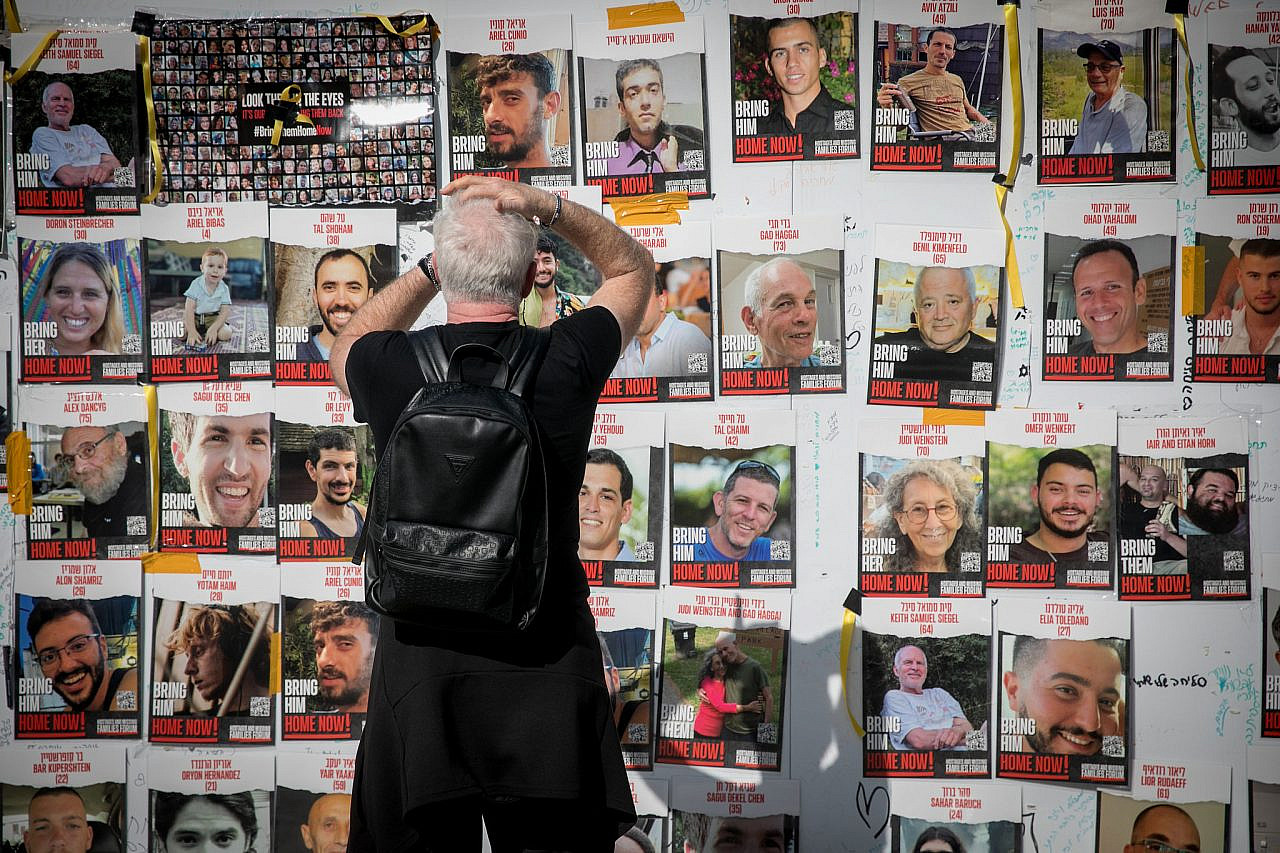
Yet Dickmann is holding onto hope that the effect of the temporary ceasefire on the Israeli psyche was irreversible. “It’s clear to the public that the war poses a major risk both to Palestinian civilians and to the remaining hostages,” he told +972. “I think since seeing the hostages reunite with their families, people understand that we can’t leave any more behind.”
‘We don’t know if they have food, water, or air to breathe’
On the morning of Dec. 6, Iris Haim and Idit Ohel, two Israeli mothers whose sons are still in Hamas captivity, held an online press conference for international media. Neither mother knows if her son is still alive because the Red Cross has not been able to visit any of the hostages to check on their wellbeing.
Haim and Ohel played the last voice messages they each received from their sons while they hid in their blast-proof rooms, the tone of both men’s voices increasingly panicked as armed Palestinians went house to house looking for people to kill or kidnap. Haim played a video of her 28-year-old son, Yotam, being dragged from his home in Kibbutz Kfar Aza into a vehicle some time after.
Hundreds of families have similar horror stories from October 7. Relatives shot dead, houses burnt to the ground, family members identifiable only by their teeth. For those families whose loved ones were kidnapped and taken to Gaza, the relief of knowing they weren’t killed was quickly replaced by desperation — not just to get their loved ones out, but to get the nation, blinded by rage, to listen to them.
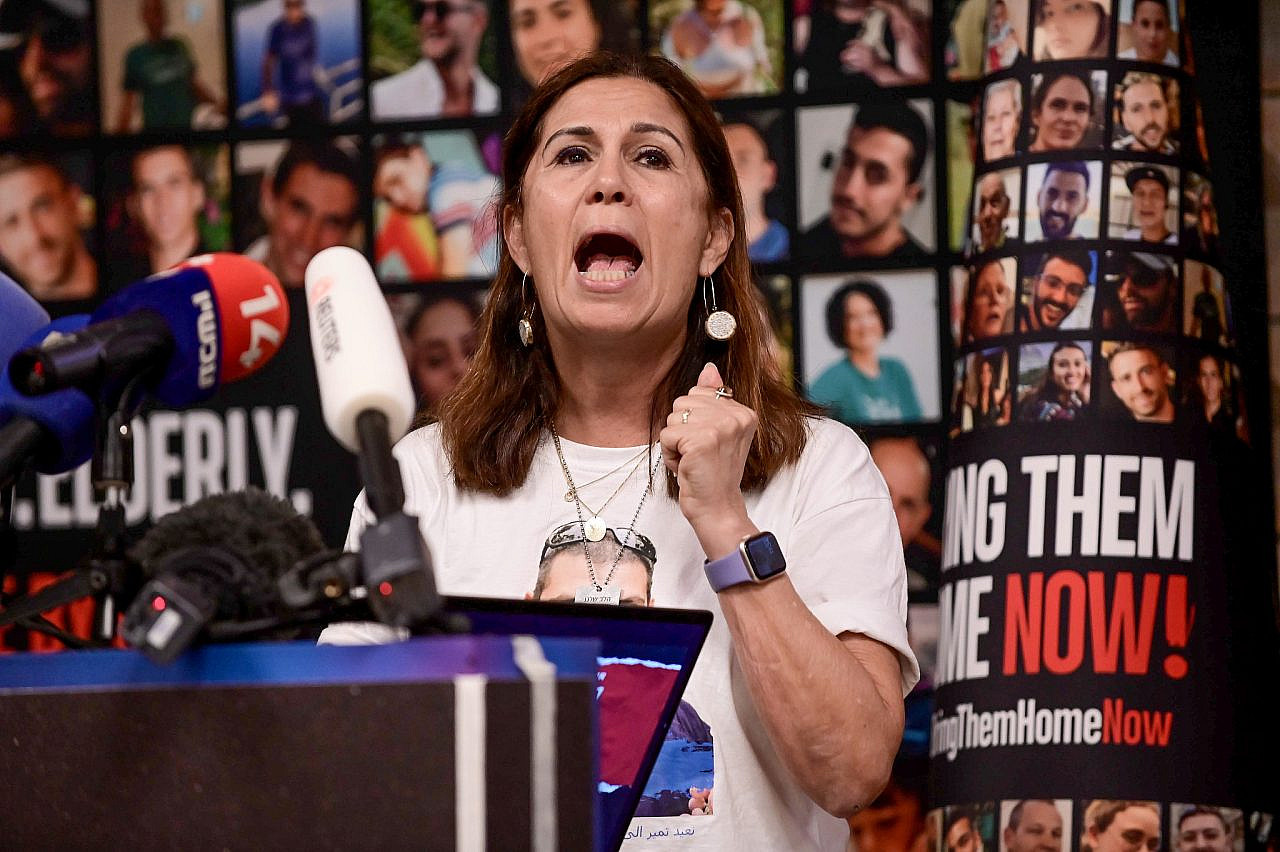
“We don’t know if they have food, water, or air to breathe,” Haim said. “We don’t know if they’re underground or above ground, where there might be danger from [Israeli airstrikes]. So we need everyone to do everything they can to get them out as fast as possible.”
The mothers hope that coverage in global newspapers and pressure from foreign states will force Netanyahu to put the release of the hostages at the top of his agenda. “We want them back home — now,” Haim continued. “We need the other governments with us — all the governments all over the world.”
One of the reasons the hostage families are directing so much of their efforts toward a foreign audience is because they feel totally neglected by the Israeli government. It took Netanyahu more than a week to first meet with some of them face-to-face, and until the evening of Dec. 5 to do so again and provide updates in the wake of the collapsed ceasefire.
The families hoped that meeting would be an opportunity for a frank discussion with the prime minister and to find out how he plans to protect the hostages while bombing Gaza into oblivion. Instead, in what the father of one of the hostages described as a “farce,” Netanyahu read pre-prepared comments off a piece of paper.
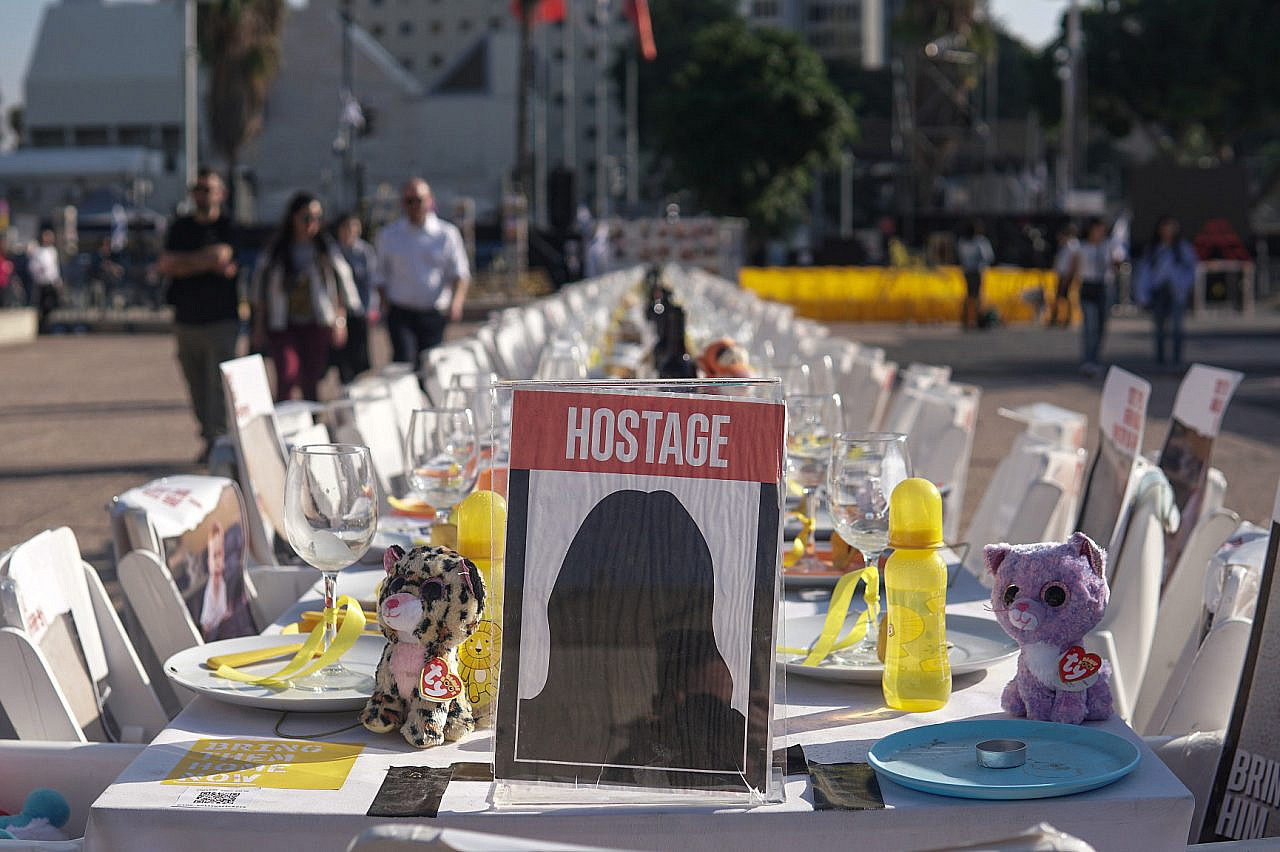
In leaked audio from the meeting, where several released hostages were also present, Netanyahu can be heard saying: “I’m telling you the facts, I respect you too much. We couldn’t bring them all at once. If we could have done it, we would have. If there was a chance to bring them all in one fell swoop, do you think anyone here would object?”
“You have no information,” one of the freed hostages is heard saying. “The fact that we were shelled, the fact that no one knew anything about where we were … You claim that there is intelligence, but the fact is that we were being shelled.”
Growing increasingly fearful
So far, the Israeli army has confirmed the deaths of 18 hostages in captivity, while an additional hostage was reportedly killed in crossfire during an attempted rescue mission. The army’s latest strategy in its all-out war on Hamas is to flood the underground tunnels with seawater — the same tunnels that are thought to be housing the remaining hostages. As time goes on, and negotiations stall, the families grow increasingly fearful that their loved ones will not come out alive.
Families of captives also have to reckon with the nightmarish conditions their loved ones are living through. According to testimonies from hostages who were released in exchange for Palestinian prisoners, men and women were sexually assaulted or abused, and all of them reported being underfed, cramped in a small space, and in danger from Israel’s bombs.
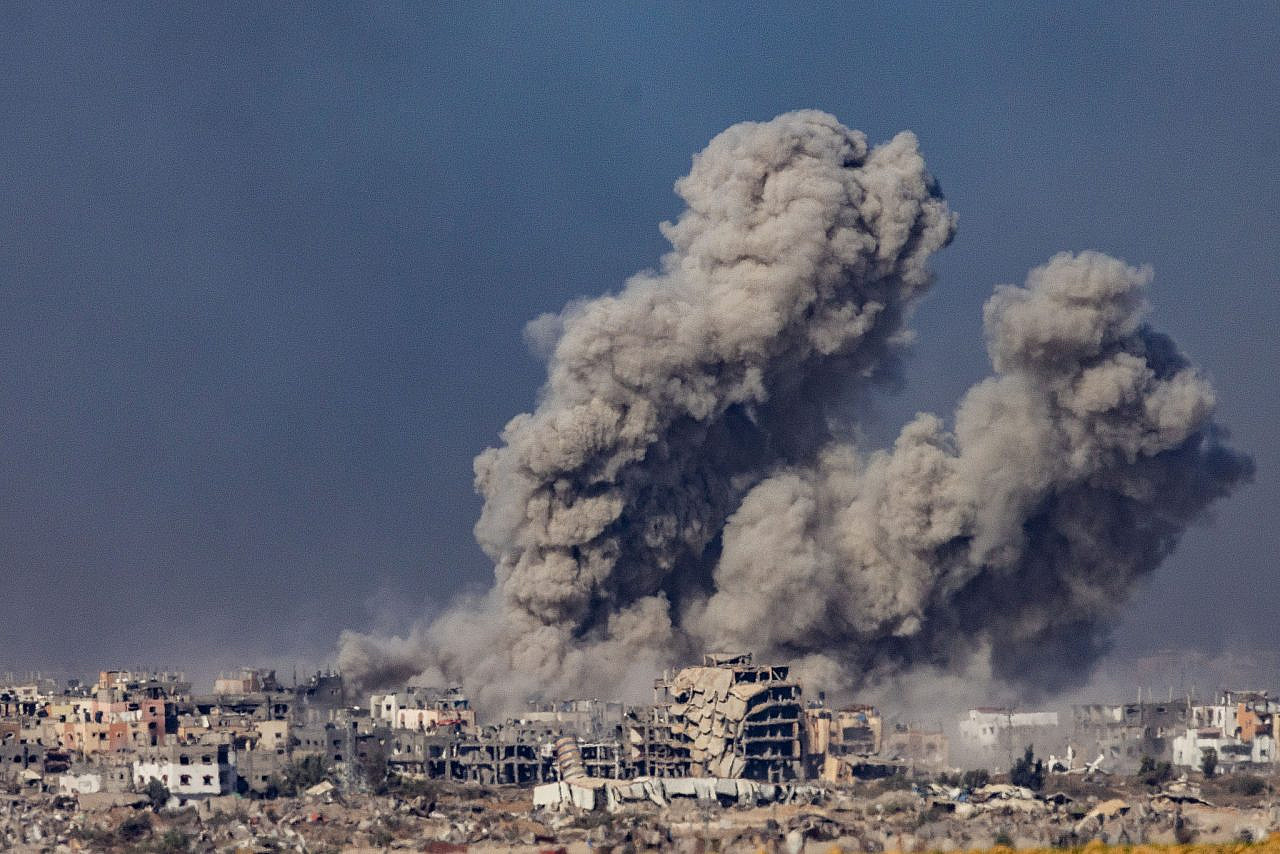
Yael Mozer Glassberg, a senior physician in the newly-formed Returnee Children’s Department at Schneider Children’s Medical Center, treated some of the released children. “The hostages came back with a loss of 10 to 15 percent of their body weight,” she told the media during a press conference. “All the hostages said the food [they received] was limited and irregular. Some kids were [kept] alone without their parents, and the older kids wouldn’t eat until the little ones were full.”
According to Glassberg, the hostages she met upon their release were crawling with lice, covered in bites and rashes, some had infected and untreated wounds, many spoke in nothing but whispers, “and more and more things that unfortunately I can’t share with you.”
Amid all the horror, the stories of families coming back together are providing inspiration for those still fighting for the release of their own loved ones. Hen Avigdori is, relatively speaking, one of the lucky ones: he has been reunited with his wife, Sharon, and daughter, Noam, who were kidnapped from Kibbutz Be’eri on October 7, and he is continuing to fight for the release of the remaining hostages.
Most read on +972
Avigdori wants nothing more than for the families of those who are still being held captive to be able to experience what he felt when his loved ones returned to him. “Mothers and fathers might compare it to the birth of their first child, but it’s more than that — it’s the rebirth of the entire family,” he told +972. “The emotion was overwhelming.”
And that is what’s driving him to keep pushing for the release of every last hostage. “I know what it’s like to be the father and husband of a missing person,” he says. “I know the agony of the unknowing, and the joy of their return. I know that we have to fight for them.”

